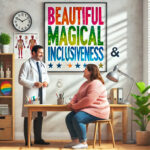How I wrote my way out of ED’s darkness
How I wrote my way out of ED’s darkness
Dear ED,
…We’ve never officially met and the reason we haven’t is because you lose your power when you try to take down someone who has strength that is from a higher power. You’re a bully who picks on someone you know will struggle to fight back. You search the world for someone just right for your purpose. Your purpose is to destroy, devalue, steal and ultimately kill. You look for someone already broken from her pain, someone used to keeping everything in to herself, someone who already doubts her immeasurable value because of her life story and someone who appears too weak to ask for help.
You feed on their inner most being, their soul. You whisper to them every night. Not forceful. No you’re too sly for that. You gently suggest that she’s not good enough, that her life is out of control, that she needs to be better and then you tell her that her value is found completely in her appearance and accomplishments. Once you’ve got your claws into her soul, you are more obvious with your assault. You pelt her with insults every opportunity you get and you swiftly change her values and priorities in life. You start feeding her shame for what she’s doing to herself and if she ever considers that life could be better, you overwhelm her so much, she forgets about it. You thrive on darkness, guilt, shame, lies and destructive behavior.
That’s why you’ve never met me, because I live in the light and you don’t survive there…
~ Extract from a letter I wrote to my best friend’s eating disorder (ED)
I recently finished reading A Girl Called Tim by June Alexander (2011). Her book has been one of the many I have recently read while considering the fields of mental health and counselling I want to work in after I graduate. My passion for working with people with eating disorders was sparked by a journey I took with my best friend who battled an eating disorder. Her struggles became particularly difficult during our final year of high school and I spent the next five years battling alongside her to find people who understood and knew enough to help her. Things have changed a little since I was 16, but the amount of resources, education and understanding is still low.
Overwhelmed with responsibility to “fix” her
The friendship with my best friend ended a few years ago, when she drifted away from me, and my passion for working with others like her ended with it. I have recently spent the better part of 18 months healing from the devastating loss of this friend who was so close to me, someone I really loved. Part of my grieving process has taught me that I often felt overwhelmed with responsibility to “fix” her. I think this was because of several reasons:
- I loved her and wanted her to live a life of freedom, not one that was dictated by her eating disorder.
- I didn’t want to lose her, and I knew the dangers and the long-term consequences of eating disorders.
- I had seen how many people just didn’t understand and who weren’t willing to sit with her in the dark places of her soul where she felt shame, abandonment and unworthiness.
Asking for help is a sign of strength
I wrote a letter to her eating disorder since it dominated so much of our friendship (extract is found above). When I read it now it is prompting me that for people to survive and move forward from their eating disorders, we have to bring them out from the darkness. Just as shame does not survive when treated with compassion, eating disorders don’t survive when someone is willing to be vulnerable enough to ask for help and tell their story. We make a difference as a society when we view that vulnerability as pure strength, not weakness.
Learning about compassion for self as well as others
Through my own processing of everything that happened during those five years, I have come to realize that I am no-one’s savior. I am not responsible for making someone better (at least not on my own). I have a lot more compassion for myself, and my expectations are a little lower. Therefore, I read June’s book (along with others from my college library) with a new interest in working with eating disorders as they no longer seemed so scary and overwhelming. I have come to learn that I can play a part in helping people heal from their disorder, rather then feeling the expectation of having to “fix” them. Ultimately, the individuals who are responsible for their own recovery with a supportive team around them appear to flourish more than their peers who are told what to do.
Professionally, as a counselor I know that my clients know themselves better than I can ever hope to, and I want to teach them to trust their instincts and believe in their own ability to care for themselves.
Change and recovery are possible – with a team
A girl called Tim reminded me and instilled a hope in me that change and recovery is possible. It reminded me that recovery takes a team of support and that eating disorders can’t thrive in the light. It reminded me of the courage it takes to tell our stories – whether publicly or privately to the ones we love. It reminded me of the strength we all have to make our lives better when we dare to believe we deserve something different. It reminded me of the difficulty it still takes to talk about our mental health struggles (whatever they may be) and helped me to make sure I remember and appreciate the bravery my future clients have when they choose to tell me their story and face their pain.
Power in words and stories
It reminded me too of the power our words have. The power to bring our darkness and our pain out into the light. The power to empower others to hope for something better. The power to bring others together who can say, “me too.”
It’s this power that inspires me to write. I have written many poems as a teenager and young adult, and I love the way they can impact someone and reach the deeper parts of their soul. I am currently writing my first novel. The story it tells is about a young woman who has lost a close friend and her journey through her grief.
Her grief is complicated and often ignored because it’s too painful, but it’s something that often has to be faced to be able to move forward. My novel also follows the journey of a guardian angel who has been tasked with the job of caring for the young woman. The young woman does not know she is being watched and cared for from afar, and her angel struggles with her lack of power to make her feel better, to make the pain go away.
Healing through the narrative
My dream is for people to read this story and know they are not alone in their pain, whether that is their own pain or pain for a loved one who is hurting. Writing this book has been an enlightening and healing process. I hope when it’s finished it will have allowed me to heal even more from my own grief experiences and remind me that life does get better. My writing (poetry, my novel and my journaling) continues to be a safe space where I can pour out all my thoughts and emotions into a place where no one can tell me they are wrong or over-dramatic. I have faith that throughout my life I will continue to write and care for the part of myself who often needs someone to listen and care for her pain.
I will continue to write, I will continue to hope for change and I will continue to heal (myself and others). And I will always remember,
“You can’t go back and change the beginning, but you can start where you are and change the ending.”
~ C.S. Lewis
About Alyssa: Alyssa lives in Sydney and is currently in her final year of her Masters of Counselling. She has a passion for working with people who are hurting and in need of empathy and care. Her desire is to be someone to walk alongside these people so they can live the full life they deserve. She wants to do this in the same way that others have done for her when she had to learn how to process and heal from her own life’s tragedies. She plays the flute, reads and is also completing her first novel. If you’d like to contact her, please send an email to alyssasterry@outlook.com.





